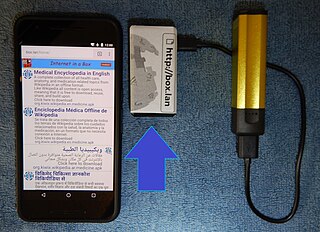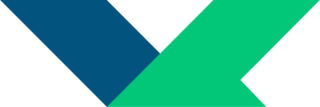 W
WThe eGranary Digital Library is a product of the WiderNet Project, a non-profit aimed at providing access to information technology and library services in developing countries.
 W
WInternet-in-a-Box is a low cost digital library, consisting of a wireless access point with storage, which users nearby can connect to.
 W
WKepler is a nonprofit higher education program that operates a university campus in Kigali, Rwanda. It is one of the first programs worldwide to integrate massive open online courses (MOOCs), flip teaching, and other education technology practices into a blended learning curriculum, with the goal of lowering the cost of higher education without a reduction in academic quality or outcomes. All graduates of the program receive an accredited U.S. degree through the competency-based College for America at Southern New Hampshire University.
 W
WMindset Network, simply known as Mindset is an African Educational Technology and Media NGO Nonprofit organization and a digital satellite television free-to air channel launched in 2003. Working across Africa. It was launched to educate and improve health in South Africa, uplift and empower communities with various Educational and Health initiatives and interventions. The organisation works with Government, International Donors and blue-chip corporates to deliver impactful, sustainable and practical change to the developmental challenges that communities face. It develops, sources, distributes and uses digital content. Its multimedia content is distributed via broadcast television, IP based satellite datacast, the web, distributable media and mobile networks. From 1 April 2020, MultiChoice launched a second channel Mindset Pop in South Africa and across Africa catering to Grade 4–9 with a lineup of programming for Grade R-3. As of 10 December 2020, The pop up channel will come to an end and no longer be available on its platform, but remained its original Mindset channel."Education is the most powerful weapon we can use to change the world and Mindset Network is a powerful part of that world changing arsenal"
 W
WPeer 2 Peer University (P2PU) is a nonprofit online open learning community which allows users to organize and participate in courses and study groups to learn about specific topics. Peer 2 Peer University was started in 2009 with funding from the Hewlett Foundation and the Shuttleworth Foundation, with its first of courses in September of that year. An example of the "edupunk" approach to education, P2PU charges no tuition and courses are not accredited. However, some courses in "The School of Webcraft" provide the opportunity for recognition of achievements through the Open Badges project.
 W
WUniversity of the People (UoPeople) is a private non-profit, distance education university.
 W
WWhy U, Inc. is a non-profit 501(c)(3) educational organization funded by the Goldman Charitable Foundation. Why U is dedicated to exploration through the use of digital media, of new education paradigms for the STEM subjects: Science, Technology, Engineering, and Mathematics. Why U's goal is to remove barriers to learning in the STEM subjects, and increase the public's depth of knowledge of STEM.
 W
WWorld History Encyclopedia is a non-profit educational company created in 2009 by Jan van der Crabben. The organization publishes and maintains articles, images, videos, podcasts and interactive educational tools related to history. All users can contribute content to the site, although submissions are reviewed by an editorial team before publication. In 2021, the organization was renamed World History Encyclopedia to reflect its broadened scope, covering world history from all time periods, as opposed to just ancient history.
 W
WWorld Possible is a non-profit organization based in California with a mission to connect offline learners to the world's knowledge. World Possible makes and distributes RACHEL, a server/router that hosts offline free educational content such as Khan Academy, Wikipedia, Project Gutenberg and others via Wi-Fi on a Raspberry Pi or Intel CAP computer. RACHEL is designed so that students or schools that do not have internet connections, but may already have devices that can receive data via wi-fi, can access educational content via RACHEL as a server. Content has been tailored to meet locally-relevant demand.